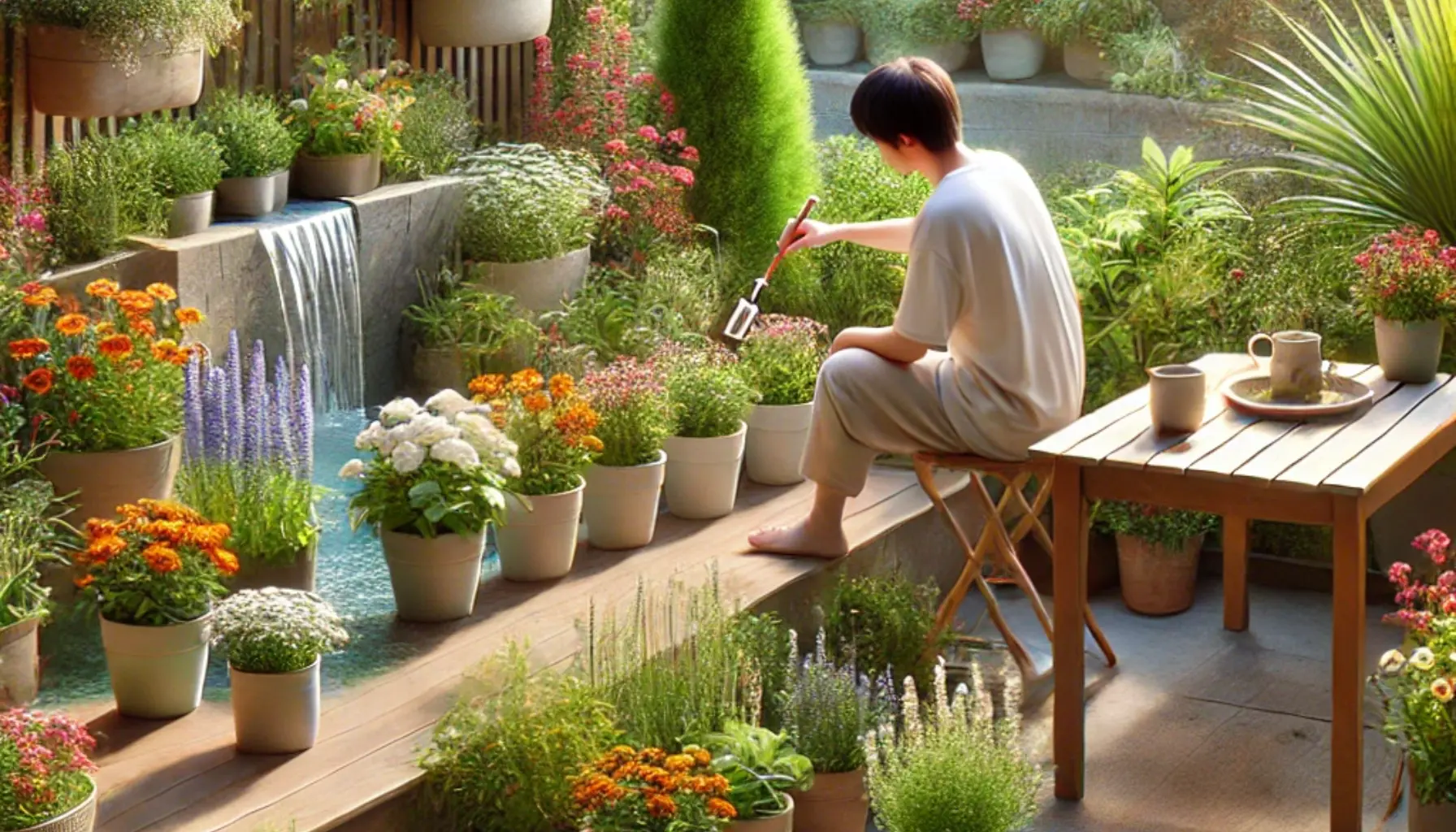Therapeutic gardening is more than a leisure activity; it’s a gateway to better mental and physical health. This intentional practice offers a profound connection to nature while creating a sense of purpose and accomplishment.
In today’s fast-paced world, gardening serves as a mindful escape, promoting relaxation and well-being. It’s a low-cost, accessible way to improve your health while enriching your living space.
This article delves into the transformative benefits of therapeutic gardening, highlighting its positive effects on the mind and body and providing actionable tips to incorporate it into your daily life.
What Is Therapeutic Gardening?
Therapeutic gardening refers to using gardening activities as a tool for mental and physical healing. The focus goes beyond simply growing plants; it’s about nurturing oneself through the act of tending to nature.
This practice has gained recognition in healthcare, where it is used in rehabilitation programs, community wellness initiatives, and even therapy sessions. By combining physical activity with mindfulness, therapeutic gardening addresses multiple aspects of well-being simultaneously.
Whether growing herbs in a small pot or cultivating an outdoor flower bed, therapeutic gardening instills a sense of purpose and calm that is invaluable in managing stress and improving quality of life.
How Gardening Benefits Mental Health
Gardening has remarkable effects on mental health. It fosters mindfulness—a state of being present in the moment—by engaging the senses through touch, sight, and smell. This sensory engagement encourages relaxation and reduces anxiety.
The sense of accomplishment from nurturing plants can significantly boost self-esteem. Watching your efforts result in flourishing greenery or blooming flowers brings satisfaction and a renewed sense of capability.
Moreover, sunlight exposure during gardening stimulates serotonin production, helping to stabilize mood and combat depression. Spending even 30 minutes in the garden can create a noticeable improvement in mental clarity and emotional resilience.
Physical Health Benefits of Gardening
The physical activities involved in gardening, such as digging, planting, and weeding, offer a gentle yet effective form of exercise. These movements enhance flexibility, improve cardiovascular health, and strengthen muscles.
Gardening also encourages better posture and balance, reducing the risk of falls, particularly for older adults. As a bonus, outdoor gardening boosts vitamin D levels through sunlight exposure, which strengthens bones and supports immune function.
The act of working with soil has additional benefits. Studies suggest that exposure to certain microbes in the soil can reduce inflammation and enhance immune responses, contributing to overall health.
Gardening as a Therapeutic Tool in Health Programs
Gardening is increasingly recognized as a valuable therapeutic tool. Horticultural therapy programs use gardening to aid recovery for people dealing with physical disabilities, mental health challenges, or chronic illnesses.
For those undergoing rehabilitation, gardening provides an opportunity to improve motor skills and regain strength. The repetitive actions involved in planting and pruning help build dexterity and coordination.
In mental health care, gardening is used to alleviate symptoms of anxiety and depression. It creates a safe space for expression and healing, offering both structure and freedom—important elements for personal growth and recovery.
Starting Your Own Therapeutic Gardening Practice
Creating a therapeutic garden doesn’t require extensive knowledge or space. Begin by identifying an area that brings you joy, whether it’s a corner of your yard, a balcony, or a sunny windowsill.
Choose plants that suit your environment and level of experience. Herbs like basil or lavender are great for beginners, as they’re easy to grow and provide sensory benefits through their scents.
Invest in ergonomic tools if you have mobility concerns. Focus on the process rather than the outcome, allowing yourself to connect with the rhythm of nature and enjoy the therapeutic journey.
How to Incorporate Gardening into Your Routine
To make gardening a consistent part of your life, start small. Dedicate a few minutes each day to tending to your plants. Even simple tasks like watering or checking on their progress can be deeply fulfilling.
Create a ritual around your gardening time. For example, combine gardening with journaling to reflect on your feelings or progress. Alternatively, pair it with meditation to enhance relaxation.
Consider joining a local gardening club or community garden. The social aspect of gardening fosters connection, encourages knowledge sharing, and adds another layer of enjoyment to the practice.
Tips for Enhancing the Therapeutic Value of Your Garden
- Focus on Sensory Engagement: Select plants with appealing textures, scents, and colors to make your garden an immersive experience. For example, soft moss, fragrant lavender, and vibrant marigolds add multi-sensory value.
- Incorporate Comfortable Seating: Adding a bench or chair allows you to sit and enjoy your garden, promoting mindfulness and relaxation.
- Add Natural Elements: Water features, wind chimes, or small sculptures can make your garden a tranquil retreat. These additions encourage reflection and a deeper connection to nature.
Gardening Inspirations for Every Lifestyle
No matter your living situation, therapeutic gardening is accessible. For apartment dwellers, vertical gardens or small pots on windowsills can bring greenery indoors. If you have a yard, create themed sections like an herb garden or a pollinator-friendly space.
For those with busy schedules, choose low-maintenance plants like succulents or hardy perennials. These require minimal care but still provide the same therapeutic benefits.
Even children can benefit from therapeutic gardening. Set up a small section where they can grow easy plants like sunflowers or radishes, teaching them patience and responsibility.
The Transformative Power of Therapeutic Gardening
Therapeutic gardening is a holistic practice that nurtures both the mind and body. It offers a sense of accomplishment, encourages mindfulness, and provides physical activity—all while creating a beautiful space to enjoy.
Whether you’re managing stress, seeking gentle exercise, or simply looking to connect with nature, gardening provides endless opportunities for growth and healing. Start your gardening journey today and experience the profound benefits it can bring to your health and well-being.

